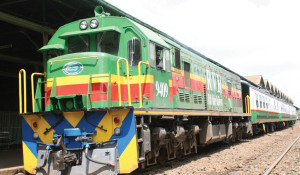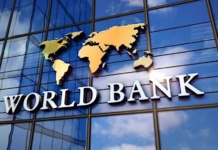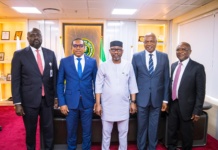The office of Uganda’s prime minister has announced that the vast majority of the developing nation’s infrastructure projects will be given to Chinese companies.
A spokesman for Prime Minister Amama Mbabzi told a news conference on Tuesday of a plan to pay for the projects using future oil revenue.
“Western companies want the old model where they are first advanced money before starting on the projects; whereas the Chinese companies, most of which are owned by government, can start without the money,” he said.
Tullow Oil, CNOOC of China and France’s Total are developing Ugandan oilfields estimated to hold 3.5-billion barrels.
Uganda is on the verge of an oil boom since the discovery of crude in 2006. The arrangement with China will fulfil what is seen as a vital improvement in the nations power generation and transport infrastructures. It is hoped that the deal will propel Uganda towards middle income status within 2 or 3 years. At present, the East African nation is classified by the World Bank as one of the poorest countries with 38 per cent of the population earning less than US$1.25 per day. This is despite the presence of substantial natural resources, including fertile soils, regular rainfall, and sizable mineral deposits of copper and cobalt.
Trade between China and Africa grew to $160bn in 2011 from $10.6bn in 2000, according to China’s state-run Xinhua news service, while Chinese investment in the continent stands at $20bn, according to Standard Bank Group.
The world’s second-biggest economy is tapping resources in countries ranging from the Democratic Republic Congo, the world’s eighth-biggest copper producer, to Tanzania, the second-largest holder of natural gas reserves in East Africa. China faces growing competition from other countries interested in investing in Africa.
Last month at the Tokyo International Conference on African Development, Japan’s Prime Minister Shinzo Abe pledged ¥3.2-trillion (£345 billion) of public and private support over five years. US President Barack Obama last week ended a three-nation tour of Africa in which he unveiled a $7bn effort to enhance access to electricity across Africa. A further $9bn will be raised by the private sector. Mr Obama said he planned to launch a trade partnership initially focused on the eastern African countries of Burundi, Kenya, Rwanda, Tanzania and Uganda — a region of more than 130-million people. The programme is designed to assist those countries’ trade with each other and with the US.
Among the impediments that the US intends to alleviate are physical roadblocks that delay the transport of goods and products. Michael Froman, the US trade representative, said it took 42 days to export coffee out of Rwanda, compared with 14 days out of Colombia.










